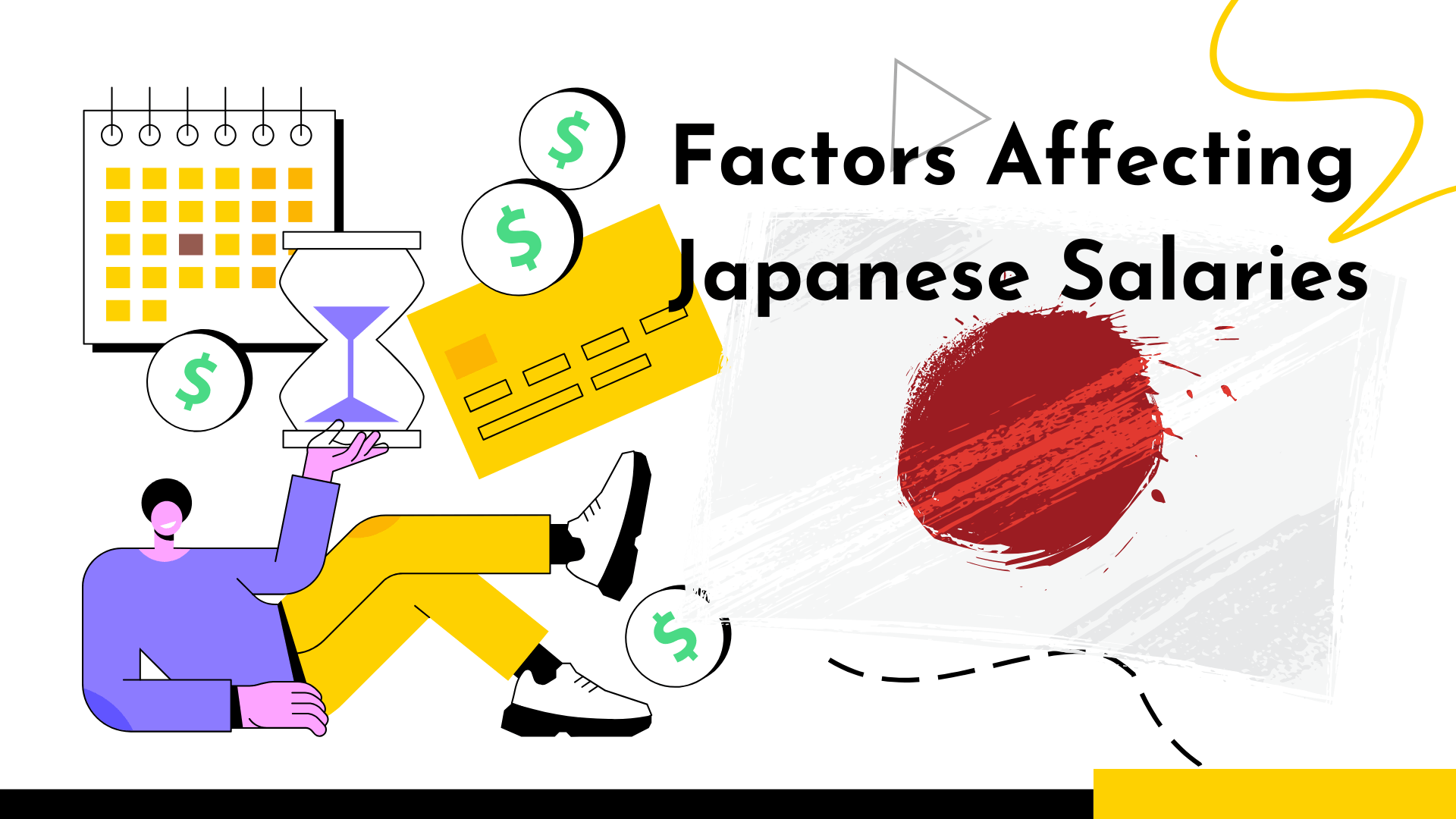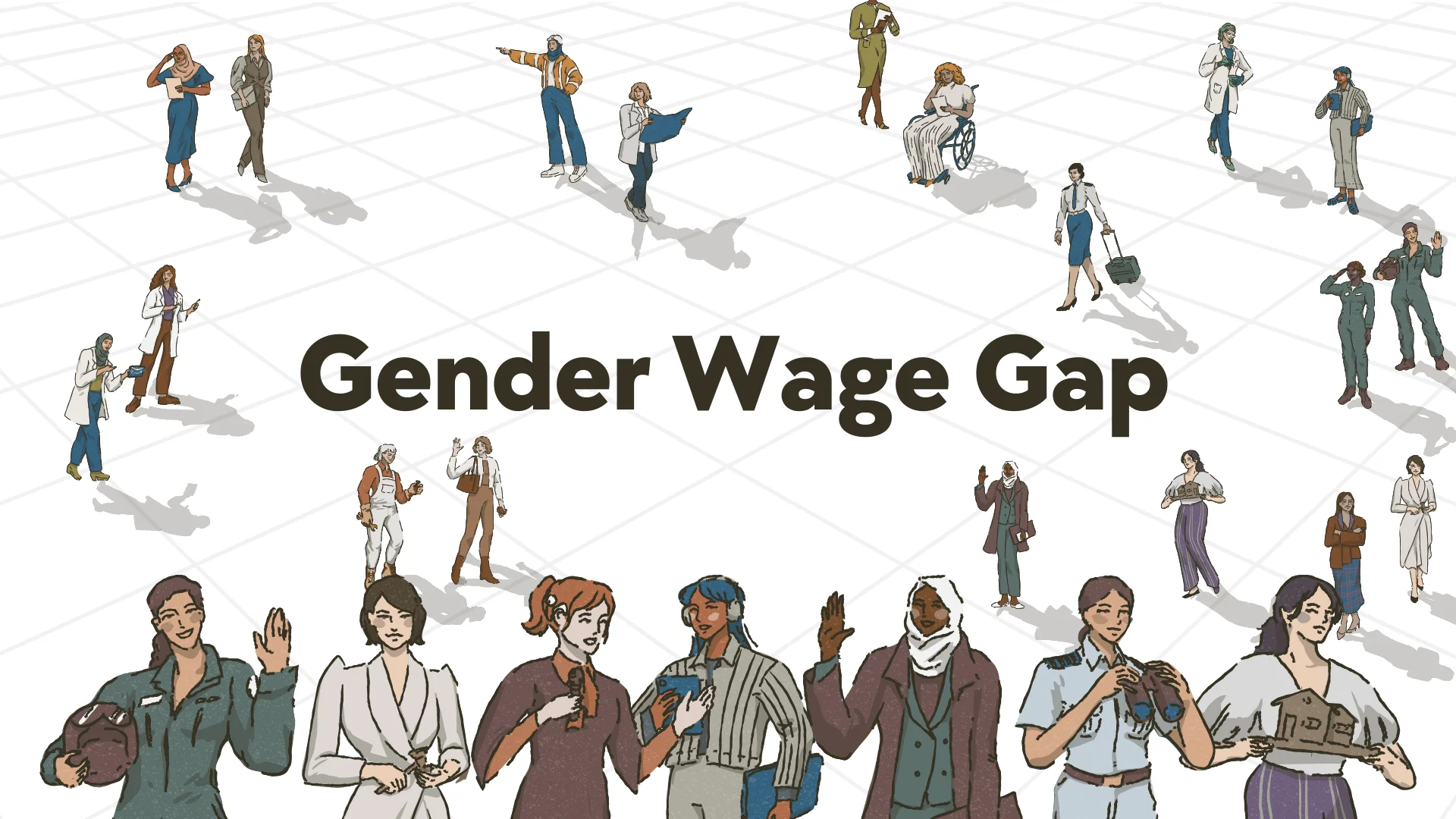Thinking about working or travelling in Japan and want to know how pay there compares to western standards?
This easy-to-read guide will break down how average salaries in Japan stack up, giving you a clear idea of what to expect financially, whether you’re planning to move to Japan or are simply interested in the country’s economy.
By the way, if you are planning to go to Japan, consider using an iRoamly Japan travel eSIM to stay connected, making it easier to share life and work in Japan with friends and family!

Average Salary Japan
What is the Average Salary in Japan?
Japan is renowned for its thriving economy and cutting-edge technology – and its wages are competitive too. Right now, the average annual salary in Japan is around ¥4.14 million, according to 2018 data. This is a fertility figure – the actual income of Japanese workers can be higher or lower, depending on factors like job sector, age, and location.
Salary Range Japan
Japan’s salary range is as diverse as its industries. Salaries for entry-level jobs typically hover around ¥2.5 million a year, while those in top-paying industries can expect to earn ¥10 million annually or more.
Minimum Wage and Industry
Minimum wage rates are set by local governments in Japan, on a per-prefecture level. The national average is currently ¥874 per hour but in Tokyo, for instance, it rises to ¥985 to help cope with a higher cost of living. Typical industries that pay close to minimum wage include retail or hospitality.
Salaries Across Different Ages
Here's a table illustrating how average salaries in Japan vary with age and gender:
Age | Male | Female | Annual Salary (Median) |
20-24 years old | 2,500,000 JPY | 2,180,000 JPY | 2,340,000 JPY |
25-29 years old | 3,610,000 JPY | 3,000,000 JPY | 3,350,000 JPY |
30-34 years old | 4,170,000 JPY | 2,910,000 JPY | 3,660,000 JPY |
35-39 years old | 4,720,000 JPY | 2,860,000 JPY | 3,970,000 JPY |
40-44 years old | 5,180,000 JPY | 2,880,000 JPY | 4,220,000 JPY |
45-49 years old | 5,530,000 JPY | 2,980,000 JPY | 4,480,000 JPY |
50-54 years old | 5,880,000 JPY | 2,920,000 JPY | 4,620,000 JPY |
55-59 years old | 6,040,000 JPY | 2,830,000 JPY | 4,700,000 JPY |
60-64 years old | 4,890,000 JPY | 2,300,000 JPY | 3,790,000 JPY |
Source of the table: https://blog.gaijinpot.com/,2024
While Japan offers a unique and rewarding salary structure, how does it stack up globally?
Global Salary Comparisons
The global salary landscape reveals notable disparities and trends among various countries.
Country | 2000 | 2010 | 2020 | 2023 |
Luxembourg | 67,932 | 75,124 | 78,977 | 85,526 |
Iceland | 61,066 | 58,131 | 75,022 | 81,378 |
United States | 61,090 | 67,217 | 77,890 | 80,526 |
Switzerland | 66,259 | 74,092 | 76,117 | 79,204 |
Belgium | 64,273 | 66,769 | 67,224 | 69,874 |
Austria | 60,507 | 66,074 | 68,136 | 67,431 |
Norway | 46,338 | 60,434 | 66,640 | 67,210 |
Netherlands | 63,471 | 70,030 | 70,641 | 65,640 |
Denmark | 52,793 | 62,462 | 67,149 | 65,612 |
South Korea | 33,114 | 40,804 | 49,599 | 47,715 |
Source of the table: https://en.wikipedia.org/wiki/Wikipedia
By comparison, Japan’s average wage of around $39,000 USD, although competitive within Asia, falls behind the majority of Western countries, underscoring a schism that also reflects different costs of living and economic approaches in these regions, but is not solely determined by surface comparisons.
What determines salaries in Japan?
Factors Affecting Salaries in Japan

1. Regional Disparities
Wages in major urban centers such as Tokyo and Osaka are generally higher because of the increased cost of living and the concentration of high-wage industries
City | Average Salary |
Fukuoka | 528,000 JPY |
Hiroshima | 477,000 JPY |
Kawasaki | 497,000 JPY |
Kobe | 517,000 JPY |
Kyoto | 507,000 JPY |
Nagoya | 547,000 JPY |
Osaka | 557,000 JPY |
Saitama | 487,000 JPY |
Sapporo | 537,000 JPY |
Sendai | 467,000 JPY |
Tokyo | 576,000 JPY |
Yokohama | 566,000 JPY |
Source of the table: Salary Explorer,2024
Interesting Fact: Did you know that renting a small apartment in Tokyo can cost as much as a large house in the countryside of Aomori? The cost of living in Japan varies significantly across regions, making urban areas like Tokyo much more expensive than rural regions such as Aomori.
2. Education and Experience
Higher educational qualifications and extensive experience can significantly increase one's salary in Japan. Here's a quick look:
Years of Experience | Average Salary |
Above 20 years | 9% more than employees with less than 20 years of experience |
15-20 years | 14% more than employees with less than 15 years of experience |
10-15 years | 21% more than employees with less than 10 years of experience |
5-10 years | 36% more than employees with less than 5 years of experience |
2-5 years | 32% more than employees with less than 2 years of experience |
Source of the table: Salary Explorer, 2024
Interesting Fact: A person with a PhD in Japan can earn nearly double the salary of someone with just a high school diploma, especially in scientific fields!
3. Industry Impact
Different industries offer different salary scales:
Industry | Average Annual Salary |
Medical and Health Care | 9,220,000 JPY |
Science and Technical Services | 8,270,000 JPY |
Real Estate | 6,990,000 JPY |
Education | 6,550,000 JPY |
Finance and Accounting | 6,360,000 JPY |
Source of the table: Salary Explorer, 2024
Interesting Fact: Employees of Japan’s automotive industry can often receive the highest bonuses. Some may earn a bonus of up to six months’ pay!
4. The Gender Wage Gap

Japan’s gender wage gap has been shrinking slowly over the past decade, partly due to changes in company pay structures, but there is still a 24 percent wage gap between men and women—that’s better than South Korea’s 32 percent, but worse than Sweden’s 7 percent.
So, what does all this mean for Japan’s current financial situation?
What Is Japan’s Economy Like Now?
Japan’s economy is stable, with growth driven by sectors like technology and manufacturing, while challenges lay with an aging populace and labor shortages in certain industries. Japan's democracy ensures that economic policies evolve through public participation and government accountability, leading to effective solutions for these challenges.
Highest and Lowest Paying Jobs
Some of the best paying roles in Japan can be found in finance, IT, and healthcare sectors, while lower paying jobs are more likely to be in hospitality and retail.
Top Ten Roles by Salary and Bonus
Here is a brief outline of the positions on the way up:
Industry | Average |
Professor at University | 2805900 JPY |
Pilot | 2195500 JPY |
Assistant Professor | 2103900 JPY |
Real Estate Appraiser | 1725300 JPY |
Lawyer | 1696200 JPY |
Journalist | 1595200 JPY |
High School Teacher | 1555400 JPY |
College and University Lecturer | 1418700 JPY |
Scientific Researcher | 1412500 JPY |
Public Accountant | 1390400 JPY |
Source of the table: https://blog.gaijinpot.com/,2024
Part-time and Temp Worker Rates
Part-time roles are paid per hour at an average rate of 1,200 JPY, with some more highly specialised positions in fields such as graphic design paying upwards of 3,000 JPY an hour.
Recent Graduates
Newcomers to the working world should expect an annual salary of around 3 million Yen.
Summary
Understanding Japanese wage structures and standards is crucial to success in the job market.
Both challenging and promising prospects await workers in Japan, where an economy that is distinct but still familiar has much to offer a professional willing to take the leap.
